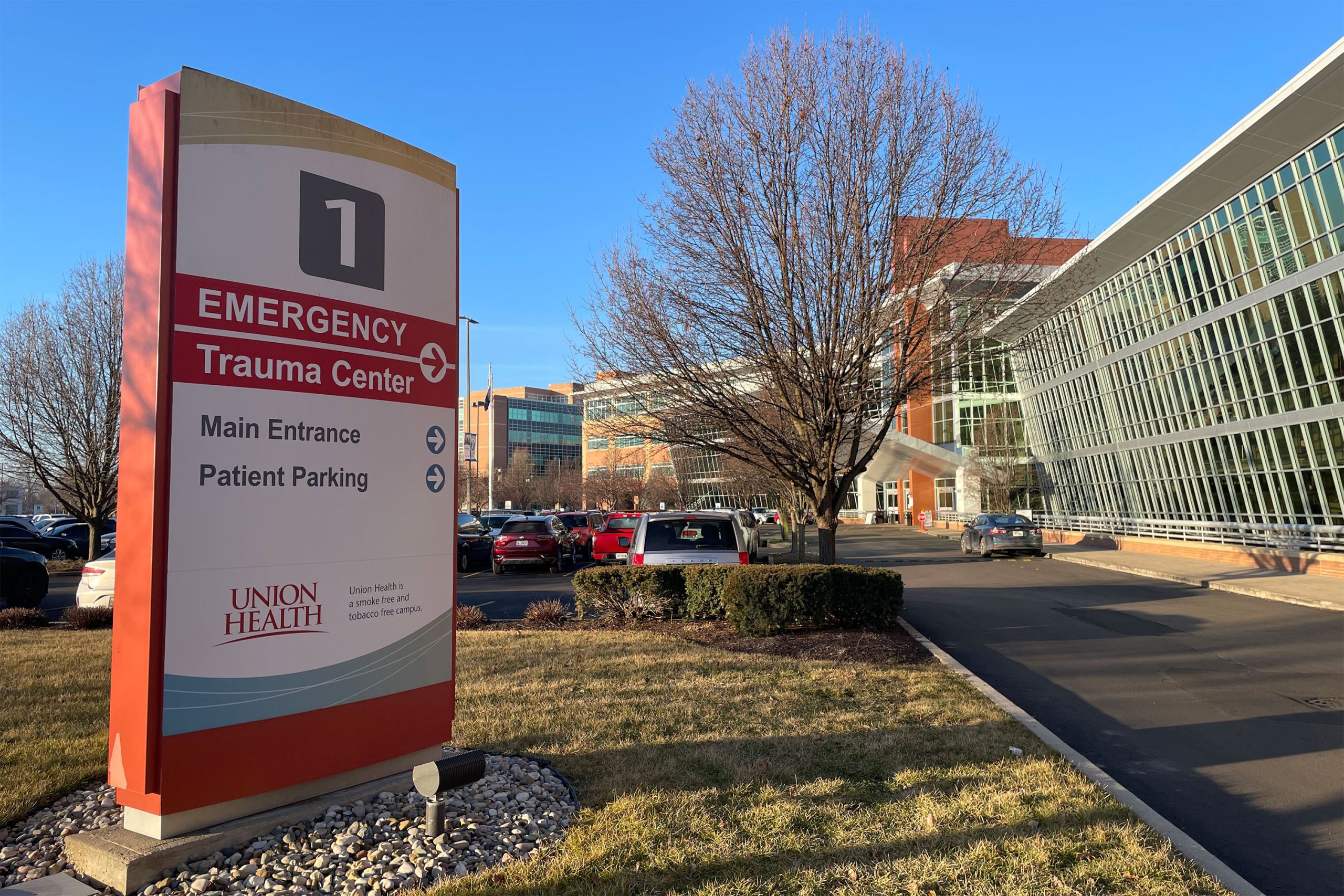Indiana residents and federal officials are urging state health regulators to stop two rival hospitals in Terre Haute from merging. The deal, if approved, would leave residents with a hospital monopoly.
Union Health, a nonprofit whose main hospital is licensed as a 341-bed facility, would buy the county’s only other acute care hospital, the 278-bed Terre Haute Regional Hospital, owned by for-profit chain HCA Healthcare and located 5 miles south across the city’s downtown area. Union says the merger to create one larger nonprofit health system would improve the area’s poor public health rankings.
The Indiana Department of Health received hundreds of comments on the proposed merger, according to documents KFF Health News obtained through a state public records request. Most people expressed opposition to the deal, citing concerns about longer travel times to get emergency care, higher prices, and fewer choices for Terre Haute’s 58,000 residents and those in Vigo County’s nearby rural communities.
“Monopoly should be just a board game. Not a healthcare system,” a commenter listed as H. Osborne wrote to the state health agency.
Doctors, health economists, and the Federal Trade Commission called on the Indiana Department of Health to deny Union Hospital’s merger application. Such mergers became possible after Indiana enacted a Certificate of Public Advantage law, or COPA, in 2021, shielding the deals from federal anti-monopoly laws.
Two dozen states have had COPA laws on their books at some point, despite FTC warnings that such mergers can become difficult to control and may decrease the overall quality of care. The trend has come amid a broader wave of hospital consolidation, which research shows fuels price hikes and health care spending, driving up costs for families, employers, and taxpayers who foot the bill for Medicare and Medicaid.
Union Health said its proposed deal would improve care and increase access to services while “maintaining cost efficiency” for patients.
“This is not merely a business transaction; it is a strategic effort to improve healthcare delivery in our community,” Union said in a statement.
John Collett, an executive with Garmong Construction who also serves on the board of the Terre Haute Chamber of Commerce, wrote that the deal would help the region achieve its goal of boosting population and income levels. (Garmong Construction served as construction manager for Union on multiple projects, including one worth hundreds of millions of dollars, according to an online brochure of its past projects.)
“I firmly believe this to be a step in the right direction,” Collett wrote.
But the FTC — using italics for emphasis — said the deal is “unlikely to result in improved quality and access” and “would not lead to a healthier workforce or a stronger local economy,” according to comments the agency submitted to Indiana regulators.
Zack Cooper, a health economist and associate professor at Yale University, said the merger would probably damage the local economy and squeeze residents’ wallets. Cooper’s analysis estimates the price of care would rise by at least 10% for area residents and lead to 500 lost jobs, while nurses’ pay would drop by at least 7%. His research predicts the deal also would lead to unnecessary deaths from suicide or overdose, stemming from those job losses.
“I firmly believe this merger would harm members of the public in Terre Haute and Vigo County,” Cooper wrote.
As a condition of these types of mergers, state agencies typically agree to monitor hospital quality and prices to make up for the loss of competition. Union said monitoring would hold it accountable, according to its response to the FTC’s public comments opposing the deal.
The FTC pushed back, saying the oversight mechanism “would be insufficient to contain costs” and is a “poor substitute” for competition. Even though Union would face limits on raising prices in Vigo County, the FTC said, the system might be able to hike them elsewhere, including at its hospital in neighboring Vermillion County to the north.
Indiana has some of the highest hospital prices in the nation, according to studies by Rand Corp., a research organization.
In Terre Haute, some doctors worry the deal would exacerbate existing problems. Kathleen Stienstra, a physician in private practice, voiced her concerns about Union’s management style, saying it has led to an exodus of doctors.
“A monopoly will lead to further deterioration in services,” she wrote.
Separately, the FTC referenced KFF Health News’ reporting on Tennessee’s Ballad Health, a 20-hospital monopoly in Appalachia, as a cautionary tale against such mergers.
COPAs, such as the one that Ballad operates under, “have proven unwieldy,” are “difficult to manage,” and “have failed to protect local communities from the harmful effects of anticompetitive hospital mergers,” the FTC said in its comments on the Union-Regional merger.
Since Ballad launched in 2018 and became the nation’s largest state-approved hospital monopoly, it has not lived up to some of its promises, KFF Health News reported. It has fallen short on meeting quality and charity care goals, according to annual reports from Ballad and the Tennessee Department of Health. After years of problems and complaints from patients, the state is now trying to hold Ballad more accountable for its quality of care.
Ballad declined to respond to KFF Health News inquiries regarding the FTC’s comments.
Now the Indiana Department of Health must consider the comments and decide by early December whether the proposed merger would improve health outcomes, access to services, and quality of care. Under the department’s standards, those benefits must “outweigh any potential disadvantages.”
KFF Health News correspondent Brett Kelman contributed to this report.

